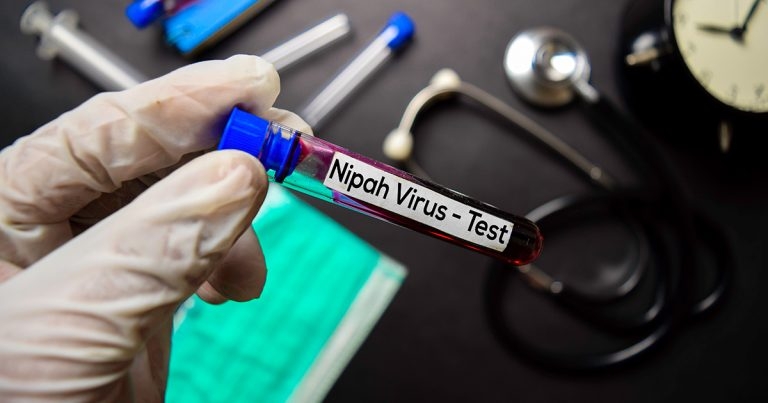30 May 2024
An Anglo-German consortium is working to develop a vaccine it hopes will reduce the risks posed by an emerging health threat to both pigs and people.

Image © olanstock / Depositphotos.com
Scientists in the UK and Germany have joined forces on a new project that is hoped will yield a new vaccine for a zoonotic pig disease.
Researchers from the Pirbright Institute are leading the work on Nipah virus (NiV), which they hope will reduce the risks to both animals and humans alike.
Around £1.5 million, including funding from the UK Government, is set to be spent on the project, which aims to develop a single-dose vaccine for the virus, plus an accompanying diagnostic test.
Officials hope the new work will build on earlier research that developed a two-dose projection programme for the virus, which is spread by fruit bats and can lead to human encephalitis.
A 1998 outbreak in Malaysia led to the deaths of more than 100 people and was only curtailed after almost half of the country’s pig population was culled.
Simon Graham, who heads the institute’s Porcine Reproductive and Respiratory Syndrome group, said: “Despite the threat NiV poses, no vaccines are available.
“Commercial development has been limited as companies fear limited marketability due to the sporadic nature of outbreaks.”
Prof Graham added: “To address this gap, the consortium aims to develop a vaccine for pigs, which could be deployed in response to an outbreak situation, or routinely used to reduce the risk of NiV outbreaks occurring.”
The Pirbright-led consortium also includes the Friedrick-Loeffler Institute (FLI) in Germany, plus three UK-based companies – EnsiliTech, Global Access Diagnostics and BioVacc Consulting.
Officials hope their collective expertise and technology will facilitate the development of rapid lateral flow tests, and a single-dose jab that is also thermally stable, meaning it would not need cold storage.
The FLI’s Walter Fuchs said: “The project builds on our expertise in genetic engineering of pseudorabies virus, which should allow us to develop a vaccine that can provide immunity after a single immunisation or can be used as a bivalent vaccine.”
EnsiliTech chief executive Asel Sartbaeva added: “Through this groundbreaking technique, we will empower veterinarians and farmers safeguarding animal health.”
Investment in the project has included funding from the Department of Health and Social Care through the UK Vaccine Network scheme, which seeks to support the development of treatment for diseases with epidemic potential in low and middle-income nations.